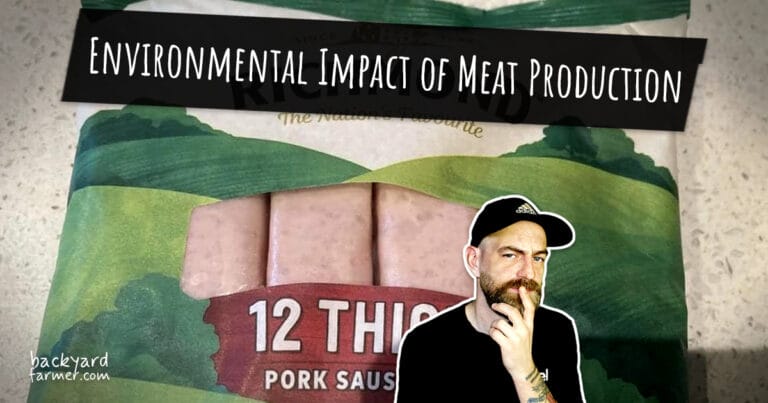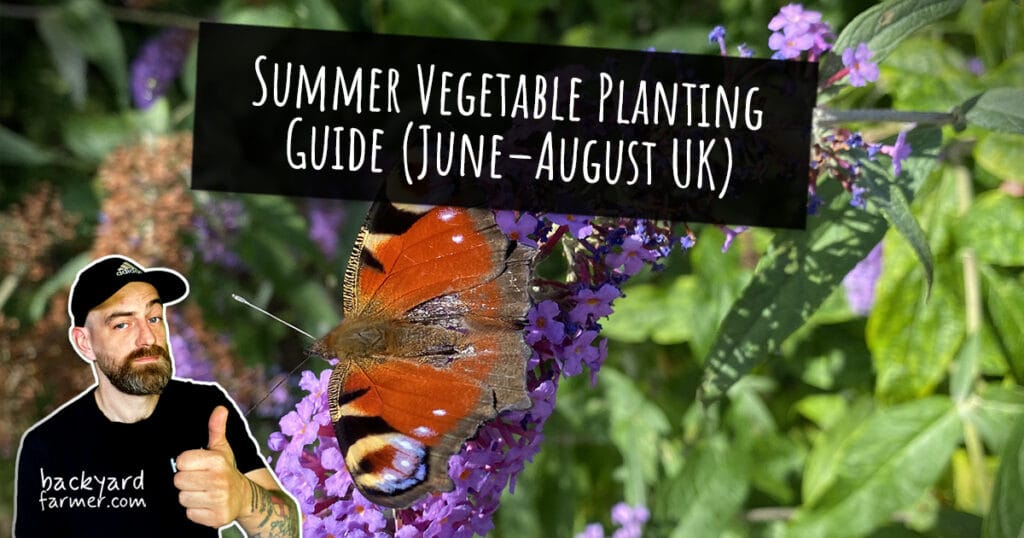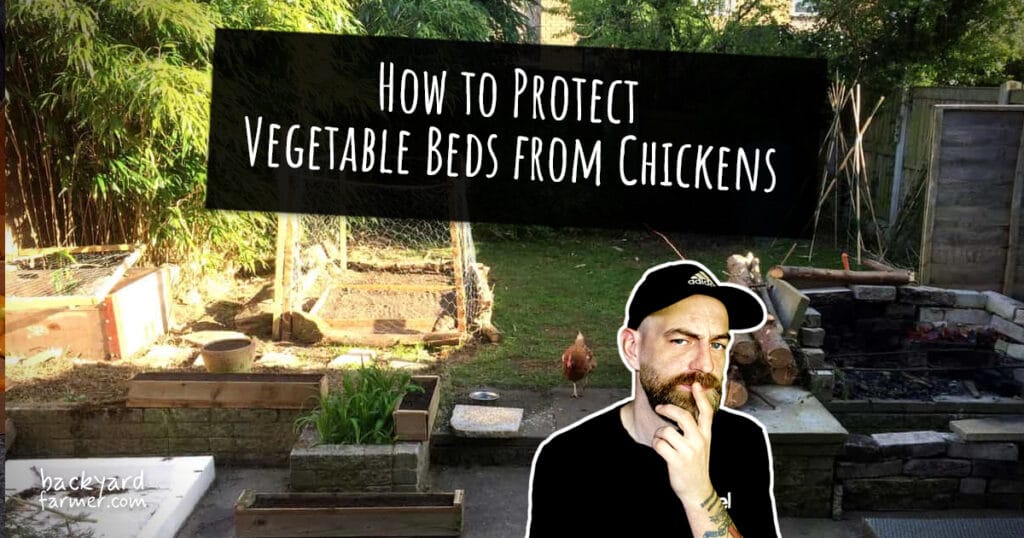Introduction
The environmental impact of meat production is often presented as a simple, polarising debate. On one side, we’re told that eating meat is inherently destructive and must stop altogether. On the other, meat consumption is framed as a personal choice beyond any criticism. In reality, however, the issue is far more nuanced — and far more practical — than either extreme allows.
The real issue is not meat itself, but how it is produced. Industrial‑scale livestock farming, designed to maximise output while minimising cost, places significant pressure on land, water, soil, wildlife, and the climate. As a result, this form of intensive animal agriculture has become a major driver of environmental damage. By contrast, smaller‑scale, traditional, and regenerative systems can operate with a much lighter footprint when they are managed responsibly.
To properly understand the environmental impact of meat production, it helps to look beyond diet labels and culture‑war arguments. Instead, we need to examine animal agriculture as a whole system and its relationship with the environment, including:
- Land use and deforestation linked to grazing and animal feed production
- Water use and water pollution caused by fertiliser and manure runoff
- Antibiotic use in meat production and its wider impact on human and environmental health
- Greenhouse gas emissions from livestock farming, transport, and processing
This article takes a balanced, down‑to‑earth approach to meat production and the environment. Rather than telling you what you should eat, it explores how different meat production systems affect the planet, why industrial livestock farming causes the greatest harm, and how realistic changes can reduce environmental impact without demanding extreme or unsustainable lifestyle shifts.
By focusing on better choices rather than absolutes, it becomes easier to eat more consciously, support healthier food systems, and reduce the environmental impact of animal agriculture — without pretending the issue is black and white.
Continue your sustainable food and lifestyle journey
If you’re exploring the environmental impact of meat production, these guides will help you discover alternative food choices, sustainable living tips, and ways to reduce your ecological footprint.
- Taking back control of our food – A reflective guide on growing your own food and reducing dependency on industrial systems.
- How to live sustainably UK – Practical tips and guidance on living a more sustainable lifestyle — from food to home habits.
- Low-energy food preservation & zero-waste pantry – Techniques for storing and preserving food while reducing waste and minimising energy use.
Environmental Impact of Animal Agriculture
The environmental impact of animal agriculture varies greatly depending on how livestock is raised, fed, and managed. Although all food production leaves some footprint, modern industrial livestock farming tends to magnify environmental damage through scale, speed, and an efficiency‑at‑all‑costs approach. As a result, animal agriculture has become a major contributor to wider environmental pressure.
Industrial Farming vs Traditional Systems
Industrial livestock farming concentrates large numbers of animals into confined spaces and relies heavily on imported feed, chemical inputs, and energy‑intensive infrastructure. These systems are designed to maximise yield while minimising cost. However, in practice, they often shift environmental damage elsewhere rather than reducing it.
By contrast, traditional and small‑scale farming systems usually operate at lower stocking densities. They rely more on local resources and often integrate animals into wider land‑management practices. While these approaches are not impact‑free, they generally place less strain on soil, water, and surrounding ecosystems when managed responsibly.
Ultimately, the key difference is scale. Environmental impacts that remain manageable at a small level can quickly become severe when multiplied across thousands of animals and extended supply chains. This is why intensive animal agriculture creates disproportionate harm compared with lower‑density systems.
Land Use, Biodiversity, and Soil Damage
Animal agriculture is one of the largest drivers of global land use. Large areas are cleared not only for grazing, but also to grow feed crops such as soy and maize. Consequently, this land conversion contributes directly to several environmental impacts, including:
- Deforestation and habitat loss, particularly in biodiversity‑rich regions
- Soil degradation caused by overgrazing and intensive monocropping
- Declining wildlife populations as natural ecosystems are replaced by agricultural land
Healthy soils are living systems, rich in microorganisms and organic matter. However, intensive animal agriculture disrupts this balance by compacting soil, reducing plant diversity, and gradually stripping land of its long‑term fertility. Over time, this weakens ecosystems and reduces the land’s ability to recover.
Water Use and Pollution
Meat production is also highly water‑intensive. Large volumes of water are required to grow feed crops, hydrate animals, and process meat products. In many cases, however, the more serious environmental issue is water pollution rather than water use alone.
Runoff from fertilisers and animal manure can carry excess nutrients into rivers, lakes, and coastal waters. Over time, this pollution can lead to:
- Algal blooms that block sunlight and reduce oxygen levels
- Dead zones where fish and other aquatic life cannot survive
- Contamination of drinking water supplies
These effects are most severe around intensive farming operations, where waste is produced faster than surrounding land and water systems can safely absorb it.
Taken together, land degradation, biodiversity loss, and water pollution explain why the environmental impact of animal agriculture is so closely linked to industrial farming methods. Addressing these problems means reducing pressure on land and water systems and rethinking how meat is produced, rather than treating meat consumption as a single, uniform issue.
Antibiotics in the Meat Industry
Antibiotics play a major role in modern meat production, particularly within intensive animal agriculture. While they are essential for treating illness, their widespread and routine use is closely linked to how industrial farming systems operate. As a result, antibiotic use in meat production has become a growing environmental and public health concern.
Why Antibiotics Are Used
In high-density livestock systems, animals are kept in close quarters, which makes the spread of disease far more likely. Because of this, antibiotics are often given preventatively, rather than only when animals are visibly unwell. This approach helps reduce losses and maintain consistent productivity within industrial livestock farming.
This practice became common in the mid‑20th century, after farmers discovered that low doses of antibiotics not only reduced disease, but also promoted faster growth and improved feed efficiency. From an industrial perspective, this made large-scale meat production more predictable and profitable.
However, while these benefits suit intensive farming systems, they also create significant long‑term consequences for both the environment and human health.
Antibiotic Resistance and Human Health
When bacteria are repeatedly exposed to antibiotics, they can adapt and become resistant over time. In intensive animal agriculture, where antibiotics are used frequently and at scale, this process accelerates.
As a result, antibiotic‑resistant bacteria can pass from animals to humans through several pathways, including:
- Direct contact with livestock or farm environments
- Contaminated food products entering the food supply
- Water and soil pollution linked to agricultural runoff
Once these resistant bacteria reach the human population, infections become far harder — and in some cases impossible — to treat using conventional medicines. Consequently, antibiotic resistance is now widely recognised as one of the most serious global public health threats.
Why Low Residue Levels Still Matter
Meat products are tested to ensure antibiotic residues remain below legal limits, which helps reduce immediate dietary exposure. However, this testing does not address the wider environmental impacts of antibiotic use in meat production.
Antibiotics, along with resistant bacteria, can persist in manure, soil, and water systems long after they are administered. Over time, these residues contribute to environmental exposure pathways that are difficult to monitor and even harder to control.
The real issue, therefore, is not simply whether antibiotics are present in food. Instead, it is how their routine use in industrial livestock farming influences ecosystems, bacterial evolution, and long‑term human health risks.
Reducing reliance on antibiotics ultimately means addressing the root cause: intensive farming systems that prioritise output over resilience. Healthier animals, raised at appropriate stocking densities and within more balanced meat production systems, naturally require less routine medication — benefiting the environment, animal welfare, and public health.
Meat Production and Climate Change
Meat production and climate change are closely linked, largely because of the scale and intensity of modern livestock systems. While animal agriculture is not the only driver of global emissions, it produces greenhouse gases in ways that differ from most other sectors. As a result, its climate impact deserves specific attention.
Greenhouse Gas Emissions from Livestock
Livestock farming produces several greenhouse gases, most notably methane, carbon dioxide, and nitrous oxide. Of these, methane attracts the most attention because it is far more potent than carbon dioxide over shorter timeframes, even though it breaks down more quickly in the atmosphere.
Methane emissions from livestock mainly come from:
- Enteric fermentation, a natural digestive process in ruminant animals such as cattle and sheep
- Manure storage and handling, particularly in liquid slurry systems used in intensive animal agriculture
In industrial livestock farming, where large numbers of animals are kept in relatively small areas, these greenhouse gas emissions increase significantly. Consequently, the climate impact of meat production rises sharply as systems scale up.
Deforestation and Feed Production
A significant proportion of meat-related emissions occurs indirectly through land-use change. Forests and other natural ecosystems are cleared to create grazing land or to grow feed crops such as soy and maize for animal agriculture.
This land conversion contributes to climate change in two key ways:
- Carbon release, when trees and vegetation are removed
- Loss of carbon storage, as complex ecosystems are replaced with monoculture crops
Even when meat is produced far from deforested regions, global feed supply chains can still link consumption in one country to land clearing in another. Therefore, meat production and the environment are often connected across borders.
Energy Use and Transport
Modern meat production is energy-intensive at almost every stage. Fossil fuels are required to:
- Manufacture fertilisers for feed production
- Power farm machinery and animal housing systems
- Process, refrigerate, and package meat products
- Transport feed, livestock, and finished meat products over long distances
Although transport is not always the single largest contributor, the combined energy demands of industrial meat production add substantially to its overall carbon footprint.
Taken together, livestock emissions, deforestation for feed production, and high energy use explain why meat production plays a significant role in climate change. Reducing this impact is less about eliminating meat entirely and more about addressing the scale, efficiency pressures, and long supply chains that define intensive animal agriculture today.
Can Eating Meat Ever Be Environmentally Positive?
The environmental impact of meat production is often discussed as though all meat is equally harmful. In reality, outcomes depend far more on how animals are raised, how land is managed, and the scale at which production takes place. In the right context, meat production can form part of a more sustainable food system and even support healthy ecosystems.
Grazing, Predators, and Ecosystem Balance
In natural ecosystems, herbivores play an important role in shaping landscapes. When grazing is balanced, it can stimulate plant growth, return nutrients to the soil, and maintain open habitats that support a wide range of species. As a result, grazing animals can contribute positively to ecosystem function.
Problems usually arise when grazing pressure becomes excessive or poorly managed. However, when stocking levels are appropriate and animals are moved carefully across land, grazing can help:
- Improve soil structure and fertility
- Increase plant diversity through controlled disturbance
- Store more carbon in soils by building organic matter
In areas where natural predators are absent, unmanaged herbivore populations can cause serious environmental damage. In these situations, carefully regulated hunting or culling can act as a practical tool for maintaining ecological balance and protecting habitats.
Hunting, Small-Scale Farming, and Wild Meat
Wild meat sourced through responsible hunting typically has a very low environmental footprint. There is no requirement for feed crops, fertilisers, antibiotics, or long transport chains. At the same time, population control can help reduce habitat degradation caused by overgrazing.
Similarly, small-scale and mixed farming systems often integrate livestock into wider land use. Animals may graze marginal land unsuitable for crops, convert inedible plant material into food, and return nutrients to the soil through manure. Consequently, these systems can support low-impact meat production when managed carefully.
Although these approaches cannot meet global meat demand on their own, they clearly demonstrate that environmental impact is shaped by production method, not by meat itself.
Why Scale Is the Real Problem
The most damaging environmental effects linked to meat occur when production is pushed to industrial scales. High stocking densities, uniform genetics, imported feed, and long supply chains all increase pressure on land, animals, and ecosystems.
By contrast, lower-density and pasture-based systems tend to be more resilient. They rely less on external inputs, generate fewer waste surpluses, and allow land time to recover between grazing cycles. As a result, these systems generally have a lower environmental impact per hectare.
This distinction highlights a key point: reducing the environmental impact of meat production is less about removing meat altogether and more about reducing demand for intensively produced meat, while supporting sustainable meat consumption and systems that operate within natural limits.
Understanding this difference helps move conversations about food, sustainability, and land use in a more constructive direction — without falling into oversimplified arguments or false choices.
Farms Not Factories: Why Production Methods Matter
The idea behind “farms not factories” is straightforward. It recognises that animals raised as part of a working farm are fundamentally different from animals treated as units in an industrial meat production system. Crucially, this difference is not only ethical — it also has clear implications for the environmental impact of meat production.
In factory farming systems, scale and efficiency come first. As a result, large numbers of animals are kept at high stocking densities, often indoors, and fed imported feed grown elsewhere. Consequently, this form of intensive livestock farming generates concentrated waste, relies heavily on antibiotics, and places sustained pressure on land, water, and surrounding ecosystems.
By contrast, farm-based systems tend to operate within natural limits. Animals are integrated into land management rather than separated from it. Stocking densities are lower, feed is more often local, and manure can be absorbed by soil instead of becoming pollution. Although these systems are not impact-free, they generally create far fewer environmental problems than industrial meat production.
This contrast helps explain why debates about meat often miss the point. The environmental impact of meat production is driven less by meat itself and more by how far food systems have shifted away from farms and toward factories. When animals are raised as part of a balanced agricultural system, environmental damage becomes easier to manage, reduce, and contain.
Ultimately, understanding the principle behind “farms not factories” helps refocus attention on meaningful change. Rather than asking whether meat should be eaten at all, it encourages a more useful question:
How can meat be produced in ways that support sustainable food systems and work with land, animals, and ecosystems instead of against them?
Reducing Meat Consumption – Environmental Benefits
Reducing meat consumption does not mean cutting it out altogether. In fact, even modest changes can significantly reduce the environmental impact of meat production, particularly when those changes focus on intensively produced meat. For many people, eating less meat is one of the most practical and achievable ways to lower their environmental footprint.
Lower Emissions, Land Use, and Pollution
Producing meat at an industrial scale requires large amounts of land, energy, water, and animal feed. As demand increases, pressure on forests, soils, and freshwater systems rises alongside it. However, by eating less meat overall, the need for these high-impact systems begins to ease.
Reducing meat consumption can help deliver:
- Lower greenhouse gas emissions, especially methane and nitrous oxide from livestock
- Reduced deforestation driven by feed crop expansion
- Less water pollution caused by fertiliser and manure runoff
Although individual dietary choices may feel small, collective changes in consumption influence how food systems operate at scale. Over time, this shift can lead to meaningful reductions in environmental damage.
Health Benefits Linked to Reduced Meat Intake
Environmental benefits often go hand in hand with personal health improvements. Diets that include less meat — particularly highly processed or low-quality meat — naturally make more room for vegetables, legumes, and whole foods.
As a result, these eating patterns are commonly linked to:
- Improved heart and metabolic health
- Greater dietary variety and balance
- Reduced reliance on ultra-processed foods
Therefore, eating less meat is not only an environmental decision. It can also support long-term health and overall wellbeing.
Shifting from Quantity to Quality
One of the most effective ways to reduce the environmental impact of meat production is to change what kind of meat is eaten, rather than focusing only on how much. Replacing frequent consumption of cheap, intensively produced meat with smaller amounts of higher-quality meat can make a meaningful difference.
This approach helps to:
- Support farming systems with higher welfare and lower stocking densities
- Reduce pressure on land, water, and natural resources
- Encourage more thoughtful and intentional eating habits
When meat is treated as an occasional, valued food rather than a default part of every meal, reducing consumption becomes far easier — and far less restrictive.
Ultimately, reducing meat consumption is less about deprivation and more about rebalancing diets. Small, consistent changes, repeated across many people, can deliver substantial environmental benefits and help move food systems in a more sustainable direction over time.
Practical Ways to Eat Less Meat (Without Going Extreme)
Eating less meat does not have to mean strict rules or giving up foods you enjoy. In fact, gradual changes are usually more sustainable and far easier to maintain over time. For many people, reducing meat consumption is about making practical adjustments, rather than committing to extreme diets. The aim here is not perfection, but steady and realistic progress.
Meat-Free Days, Not Meat-Free Lives
One of the simplest and most effective ways to eat less meat is to introduce regular meat-free meals or days. This flexible approach removes pressure while still delivering clear environmental benefits linked to reduced meat consumption.
Many people find it helpful to:
- Choose one or two meat-free days per week
- Save meat for evening meals rather than eating it at every sitting
- Treat meat as part of a dish, rather than the main focus
Although these changes may seem small at first, they quickly add up when practised consistently. Over time, this approach makes eating less meat feel normal rather than restrictive.
Using Beans, Lentils, and Mushrooms Effectively
Plant-based ingredients work best when they are used for what they naturally offer, rather than as poor imitations of meat. When cooked properly, beans, lentils, and mushrooms provide bulk, texture, and long-lasting satiety, making them ideal meat alternatives in everyday meals.
For example:
- Lentils and chickpeas absorb flavour well and work particularly well in stews, curries, and sauces
- Beans add substance to soups, chillies, and slow-cooked dishes
- Mushrooms offer a deep, savoury flavour that suits roasting, grilling, and pan-frying
When paired with herbs, spices, and simple cooking techniques, these foods can replace meat naturally, without leaving meals feeling empty or unsatisfying.
Cooking Skills as a Sustainability Tool
Learning a small number of reliable, plant-forward meals makes eating less meat far easier in practice. Basic cooking skills allow you to adapt recipes, make better use of seasonal produce, and avoid relying on highly processed meat substitutes.
Simple habits that support lower-meat eating include:
- Building meals around vegetables, grains, and legumes, with meat as an optional addition
- Using sauces, stocks, and marinades to add depth and flavour
- Cooking larger batches and freezing portions for busy days
Over time, these habits reduce reliance on convenience foods and support more sustainable eating patterns. Ultimately, eating less meat is not about deprivation. Instead, it is about expanding your cooking repertoire, discovering new flavours, and making food choices that work better for both the environment and everyday life.
Vegetables That Make Reducing Meat Easier
One of the main reasons people struggle to eat less meat is not a lack of willpower, but a lack of satisfying alternatives. When meals feel light, bland, or unfinished, meat is often what people miss. In that case, the solution is not simply to reduce meat, but to build better, more flavourful meals around vegetables.
Find Vegetables You Actually Enjoy
Taste is personal, so no single vegetable works for everyone. Because of this, the key to reducing meat consumption is experimentation. By trying different vegetables and cooking methods, it becomes much easier to find plant-based foods you genuinely enjoy, rather than forcing yourself to eat foods you don’t like.
Some vegetables are particularly useful when replacing meat because they are filling, versatile, and full of flavour:
- Root vegetables such as squash, sweet potato, and carrots
- Alliums like onions, garlic, and leeks, which add depth and richness
- Leafy greens including spinach, kale, and chard
- Aubergine and courgette, both of which absorb flavour well and roast beautifully
When prepared properly, these vegetables can form the foundation of satisfying, well-balanced meals that make eating less meat feel natural rather than forced.
Use Sauces, Herbs, and Marinades
Vegetables benefit from the same care and attention as meat. Without enough seasoning, fat, and acidity, even good ingredients can taste flat. However, when flavour is built properly, vegetables become rich, comforting, and deeply satisfying.
Using combinations of:
- Olive oil or butter
- Fresh and dried herbs
- Spices, citrus, and vinegars
- Tomato-based or yoghurt-based sauces
can dramatically improve the taste of plant-forward meals. In many cases, a well-made sauce matters more than the vegetables themselves and plays a key role in successful meat-free cooking.
Think Beyond the Usual Choices
Many people associate vegetables with a very limited range of options — often potatoes, iceberg lettuce, or cucumber. In reality, the variety available is far wider.
By exploring seasonal produce, visiting local greengrocers, or trying unfamiliar vegetables, plant-forward meals quickly become more interesting and enjoyable. Local greengrocers are often an overlooked resource and are usually more than happy to suggest ways to prepare produce you may not have cooked before.
When vegetables are treated as the main event rather than a side dish, meals become more filling, varied, and enjoyable. As a result, reducing meat consumption feels natural rather than restrictive, helping to build long-term eating habits that support both personal health and environmental sustainability.
The Bigger Picture
Discussions around the environmental impact of meat production often become stuck at the extremes. In reality, however, meaningful change rarely comes from perfect solutions adopted by a few. Instead, long-term progress tends to come from small, consistent improvements made by many.
Food systems are complex, and no single food choice exists in isolation. Because of this, what matters most is the overall direction of travel. Choosing to eat less meat, sourcing it more thoughtfully, and placing greater value on how food is produced can all help reduce environmental impact over time.
Conscious eating is not about rigid rules or feeling guilty about what’s on your plate. Rather, it’s about understanding where food comes from, recognising the limits of land and ecosystems, and making decisions that support both personal values and environmental sustainability.
By moving away from a default reliance on intensively produced meat and supporting more balanced, sustainable food systems, it becomes possible to protect soil, water, wildlife, and climate — without demanding unrealistic or unsustainable lifestyle changes.
Ultimately, the goal is not to eat perfectly, but to eat more intentionally. When food choices are guided by awareness rather than habit, even modest changes can help build healthier landscapes, more resilient farming systems, and a more sustainable relationship with the food we eat.







